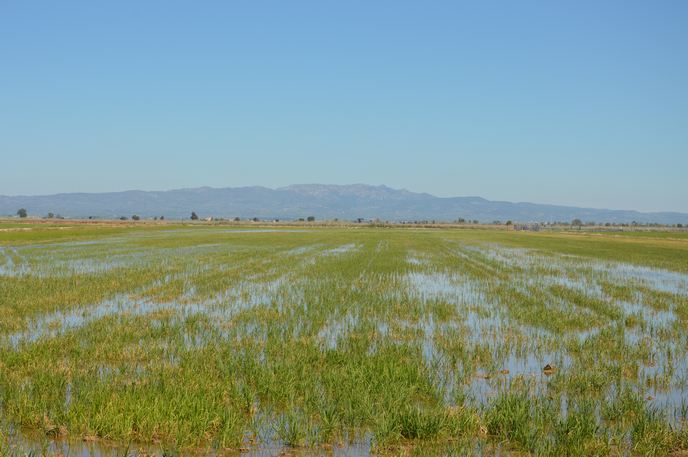Introducing genetic variation in rice crops to protect against climate change and pest infestation
The global temperature rise over the past 50 years has increased salinisation, especially in coastal areas, due to an increase in sea level and water scarcity. Salinity affects rice plant growth and reproduction, negatively affecting cereal productivity. At the same time, seawater treatment has emerged as the most effective strategy for combatting the apple snail species from the genus Pomacea, which eats the sown seed and the rice plantlets in paddy rice fields, inducing losses of tens of billions of euro a year.
Introducing genetic variation in rice crops
To overcome the negative impact of apple snail seawater treatment but also mitigate the effects of water salinisation due to climate change, scientists of the EU-funded NEURICE project developed commercial rice varieties. “Our goal was to obtain rice lines tolerant to abiotic (salinity) and biotic (apple snail) stress,″ explains project coordinator Salvador Nogués Mestres. NEURICE brought together experts from diverse scientific fields such as biotechnology, plant physiology, farming and agriculture development, electrophysiology and cell signalling. Partners selected a salt-tolerance character called Saltol from a traditional Indian rice variety named Pokkali, known to be one of the most salt-tolerant rice varieties in the world. They then backcrossed it for several rounds with different Spanish, French and Italian elite rice strains while selecting those descendants that kept the salt-tolerance genomic region, a non-GMO strategy known as introgression. The tolerance to salinity of these descendant plants was evaluated in hydroponic tests under controlled greenhouse conditions. At the same time, scientists investigated key mechanisms implicated in salinity tolerance control at the molecular, cellular and whole plant levels and sequenced hundreds of rice varieties to find out new salt tolerance-related genes. “Introgressing a character in only 2 years is very challenging, and as far as we know we’ve developed the fastest backcross breeding protocol ever,″ emphasises Nogués. Scientists analysed over 70 DNA markers in each generation to select those individuals with the highest percentage of European variety genome while keeping the Asian salt-tolerance alleles. In addition, a breakthrough fast-breeding method including in vitro embryo-rescue technique forced immature rice embryos to germinate one month in advance and achieve three generations a year. This way they successfully introduced a chromosomal region by breeding in the fastest manner, yet avoiding transgenic technologies. Importantly, the new salt-tolerant rice varieties maintained the features required for the regional natural environment. In spring 2021, the first registered Saltol, salt-tolerant European varieties will be commercialised for farmers.
The future of salt-tolerant rice varieties
With Europe producing two thirds of its consumed rice in excess of 3 million tonnes per year, maintaining rice crop health is paramount for agriculture and for food security. Researchers discovered new genes and alleles that can now be exploited to improve the adaptation of European rice varieties to the new conditions imposed by climate change, such as higher salinity, higher temperatures and less water availability. According to Nogués: “The most significant achievement of the project was raising awareness among European farmers about the apple snail pest, and how to avoid its spreading to the main European rice production areas.″ Introduction of these novel salt-tolerant European rice varieties can lead to the eradication of the apple snail throughout Europe through seawater treatment. This will have a positive environmental and socioeconomic impact, avoiding less effective and highly contaminant chemical strategies. Know-how obtained during NEURICE on how to produce these new salt-tolerant rice varieties, the discovery of new salt-tolerance genes and the new varieties themselves will be fed into the European rice industry and rice farming sector. Coupled with improvement of management practices such as rational water use and implementation of remote salinity monitoring systems, it will significantly advance the agriculture of rice.
Keywords
NEURICE, rice, salinity, seawater treatment, apple snail, genetic variation, salt tolerance, introgression

